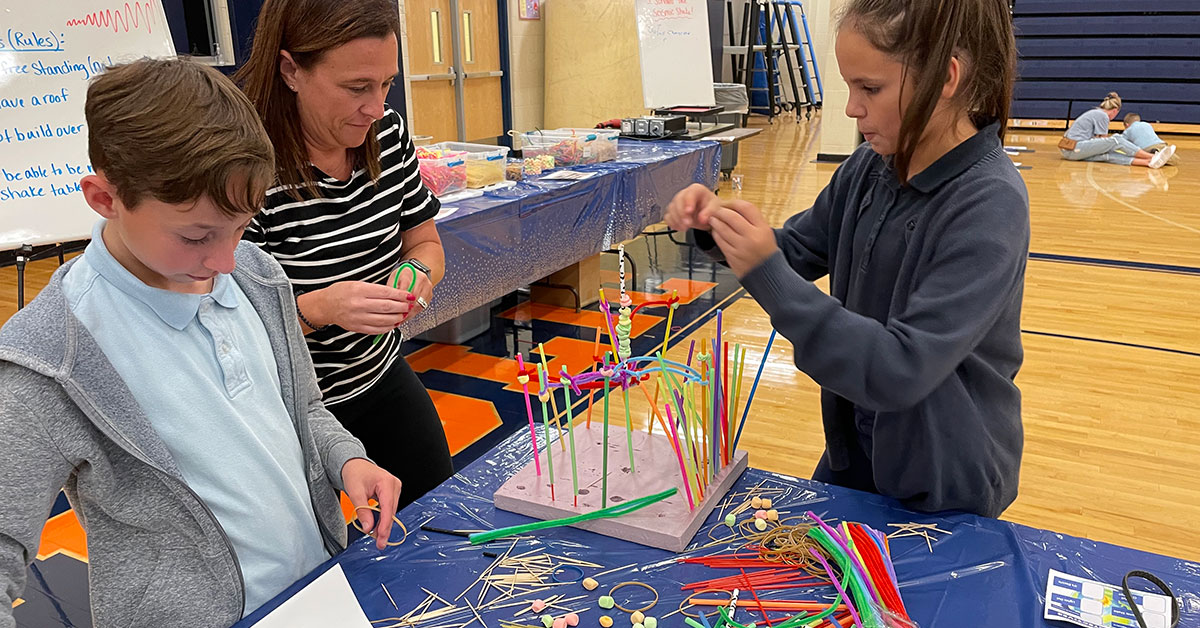Why?
It’s the biggest of the big questions. Bigger than what and who. Bigger than how or where.
Why?
Whether you’re exploring the meaning of life or investigating fractions, answering “why” inspires the deepest form of understanding. Any lesson you teach can be enriched by adding “why”; instead of mere answers, encourage “because…” Help your students articulate the reason why they believe their answers are correct.
But there’s a “why” that’s bigger than any lesson—one you need to answer if you want to cultivate students who live fully flourishing human lives:
Why does school matter, anyway?
Think it Through
Sir Ken Robinson, one of the most influential educational thinkers of the last century, posits four primary rationales for education. These rationales aren’t prescriptive, they’re descriptive; they outline people’s psychological motivations for establishing and supporting schools:
- Personal. Education helps students understand the world around them, which both fulfills them and enriches their experiences in life.
- Social. School helps students, either today or in the future, to make the world a better place.
- Cultural. Human civilization is, essentially, a set of ideas that we pass down to subsequent generations. School is a primary conduit of these big ideas.
- Economic. Schools help students acquire the skills they’ll need in order to be productive members of the economy.
Proponents of each approach can provide cogent arguments in support of their position. In practice, an economic focus is currently transcendent. However, adopting the social perspective allows us to address all four purposes more thoroughly. Here’s why.
Work it Out
There is a clear and logical reason why school matters most when it emphasizes our need to improve the world. We live, notoriously, in a post-fact world, but recent evidence suggests that the death of truth may be greatly exaggerated. I hope you find the following line of reasoning compelling, and that it helps shift both your thought and your practice.
An emphasis on the social rationale for school necessarily entails addressing Robinson’s other three rationales. In fact, it enhances our ability to do the other three well. Of the four rationales, it alone has this feature; therefore, an emphasis on using school to improve our society is, in the language of game theory, the strategically dominant approach.
Helping students serve a purpose greater than themselves enriches their personal experience of school. This sense of greater purpose is one of the prime motivators that drive humans. Study after study has demonstrated that selflessness produces more durable and authentic enjoyment of life. If we emphasize personal fulfillment at the expense of social benefit, then, we aren’t effectively promoting personal fulfillment. To really enrich students’ lived experiences, we need to cultivate a selfless orientation.
Putting social benefit at the heart of education also addresses cultural and economic rationales for education. It does this in two ways: by deepening engagement and by increasing the applicability of learning.
Reflect on Why
Project-based learning has emerged as the primary way that schools empower students to make a positive difference. When students apply their learning to accomplish purpose-based projects they care about, it engages them in the learning process in profound ways. When students are more deeply engaged, they learn and retain content more effectively. Engaging students through purpose-based PBL experiences allows them to really learn content — not just to borrow it for long enough to pass the next test.
PBL also helps students see their learning as relevant; by using academic content for a bigger purpose, they become more capable of applying their learning. Content that ostensibly serves cultural or economic objectives — but which can’t be applied outside of the classroom — doesn’t really serve those aims at all. Not only does a social emphasis in schools help promote the personal flourishing of students, it also enhances our ability to achieve desirable cultural and economic outcomes.
Fix it Up
In practical terms, what does that mean for your classroom?
Well, for starters, dip your toes into the world of purpose-based learning. It’s okay if your steps are small, as long as they’re bold ones in the direction of helping your students make a positive difference in the world, today. As you do, you’ll discover something amazing: all that content we’ve been teaching in isolation has a purpose! It can be used.
As you gain experience, you’ll start seeing opportunities to integrate content into rich, purpose-oriented learning experience all over the place!
Share Your Awesome
These are difficult times for teachers; we need to band together. If you’ve got a success story, share it out. Encourage other teachers to join the movement. Support your colleagues as they work to make their classrooms memorable, meaningful, purpose-filled places.

